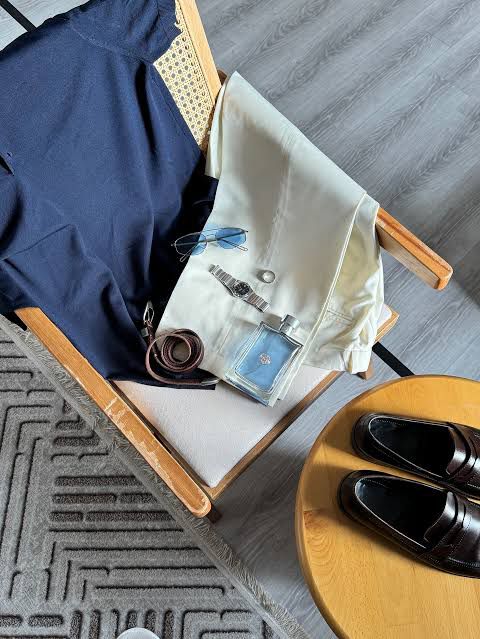Street Performance: Karl Marx warned us about “commodity fetishism” — the obsession with goods over human value. In 2025 Pakistan, the realisation of Karl Marx’s prophecy unfolds on TikTok streets, where individuals thrust microphones into their faces, demanding a reduction in their outfit cost.
The recent and ubiquitous ‘break down your outfit cost’ trend has inundated everybody’s ‘For You’ page and managed to win the algorithm’s favour. A college student in Lahore’s Emporium Mall freezes as a TikToker shoves a mic in her face: ‘Break down your outfit cost! Her ₨. 2,500 knockoff Zara blazer suddenly becomes ‘₨. 25,000 imported’. Nearby, teens in identical Adidas Sambas (₨. 3,000 fakes of ₨. 25,000 originals) snap selfies. Welcome to Pakistan’s Great Consumerist Theatre, a place where lies serve as currency and people sell their self-worth on social media platforms.
Initially, this trend was a light-hearted and fun one, but now it’s veering towards something more sinister. The pressure to demonstrate and exemplify more for audiences and less for authenticity is growing. In these videos, it is increasingly rare for someone to provide a realistic answer to the question, with prices starting at Rs. 15,000 for a basic tee and reaching exaggerated amounts like Rs. 300,000 for a pair of shoes that the wearer claims are imported. The need to dress to impress has deepened to a level where even children are not immune to it; they pay such absurdly high prices for ordinary-looking clothes and other items that viewers are left baffled.
This trend is unsurprising, as it represents a missing jigsaw piece in a society that prioritises material possessions above all else; a prime example is the awe surrounding an iPhone, which often induces a God complex in many users. Owning an iPhone for reasons entirely personal is completely alright; however, owning an iPhone primarily to bully non-iPhone users or sulk in the shadow of a newer model owner is where the line ought to be drawn. The allure of the illusion of wealth is not limited to the purchase of an iPhone. In fact, this issue extends to twelve- to thirteen-year-olds carrying non-PTA iPhones, which is a crime that is often overlooked, simply because their peers are doing the same. More light ought to be shed on the reasons why a literal child feels the need to carry a mobile phone that costs a hefty amount of money.
Trends promoting vanity:
Where neither electronic media is properly regulated nor influencers are called out, it is natural for inane trends to emerge and far more natural for people to add their twists to them. Labelling clothes as imported or branded, calling non-Apple users ‘poor’ (and defending Apple with such fierce loyalty that one questions personal motives), and feeling hesitant while speaking one’s mother tongue (or embracing one’s own culture) are all actions people take just to appear wealthy. In various ways, a collective loss of self-identity is occurring, driven by trends that individuals perceive as assessing and determining their value. Insecurity is cyclical and contagious. When a paid celebrity convinces a joyful person that they are missing out on “life’s greatest delights”, they take it out on someone else by shaming them for not owning the product, even if they have a fake. A recent example of an overhyped item (which many are convinced is nothing more than a social experiment to determine the lengths people will go to fit in) is a Labubu, a palm-sized, furry, cartoon doll that is being both purchased and collected by the wealthy, despite it costing a whopping amount and looking unsuitable for placement on luxurious bags. Of course, copies priced much lower also immediately flooded the market under the label of ‘Lafufus’. Both Labubu and Lafufu articulate the overwhelming influence of consumerism and the environment that fosters it.
The burdens of living in a capitalist state:
With every passing day, survival in a capitalist state is becoming more and more difficult. Every move is analysed from a materialistic perspective, be it the food they eat, the clothes they wear, or the places they shop. More emphasis is laid on keeping up appearances than actually enjoying an experience or a smart investment. In a country where salaries are meagre and the cost of living fluctuates dramatically due to inflation, the sight of many people flaunting expensive lifestyles raises questions. To keep up with surreal expectations and the impossibly high standards set, many choose to purchase high-cost and short-term investment items such as clothes or mobile phones (which rapidly devalue) rather than making more sustainable choices such as investing in business, purchasing property, or upgrading vehicles, which is all systematic and planned progress, both for the present and the future. Indeed, maintaining appearances is crucial, but it’s ultimately up to each individual to determine whether to prioritise their current needs or those of the future.













